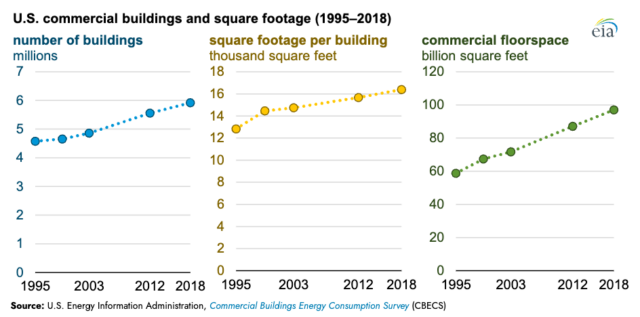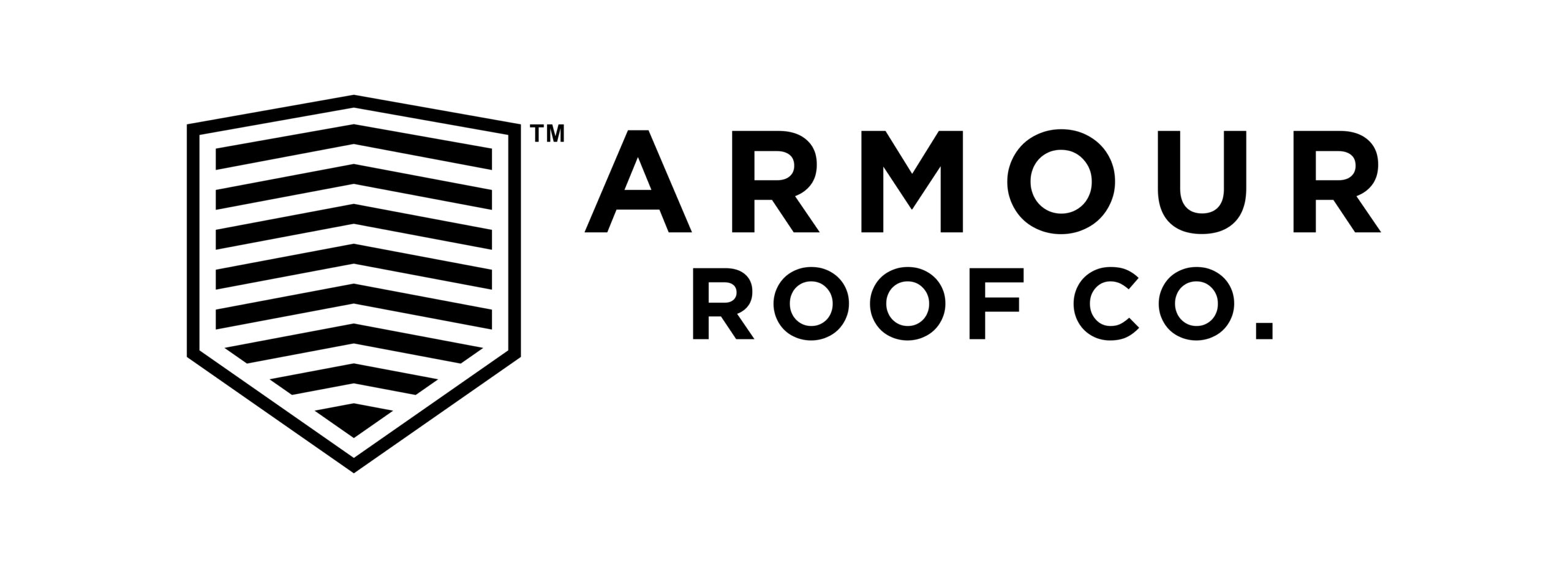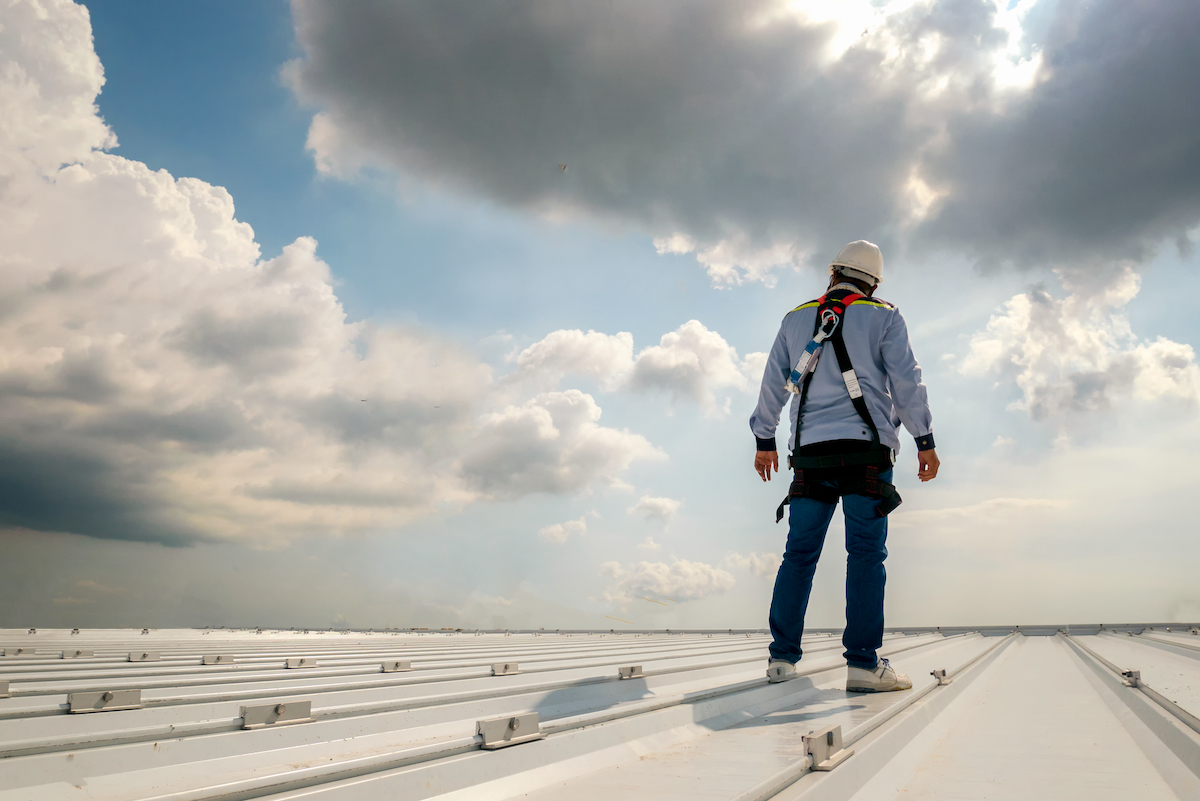What is a Commercial Roof Inspection?
A commercial roof inspection is a comprehensive evaluation of a building’s roof conducted by a qualified professional. This process involves assessing the overall condition of the roofing system, identifying existing or potential roof problems, and recommending appropriate repairs or maintenance to ensure the structure’s longevity.
Regular roof inspections are critical for preserving the integrity of the roof and preventing costly issues such as leaks, water damage, or structural deterioration.
According to the U.S. Energy Information Administration, the United States had an estimated 5.9 million commercial buildings in 2018, with a total floor area of 97 billion square feet. Projections indicate that the number will grow to 124.6 billion square feet by 2050. As property owners strive to protect their investments and ensure building safety, the demand for proper roof maintenance and inspections will continue to rise.

Source: U.S. Energy Information Administration
In this article, we’ll explore the key reasons for scheduling a commercial roof inspection, the common issues that inspectors look for, what a detailed roof inspection process entails, and the essential questions you should ask your roofing contractor to maintain a safe and durable roofing system.
Why Schedule a Commercial Roof Inspection?
When you own a building, maintaining the integrity of its roofing system is essential for both safety and financial reasons. Scheduling regular commercial roof inspections can help identify potential problems before they escalate into costly repairs or replacements.
Here are some of the most common reasons why you should consider scheduling an inspection:
Seasonal Changes
Extreme weather conditions, such as severe weather in winter or high winds during storms, can take a toll on your building’s roof. Routine roof inspections after such seasonal changes can uncover issues like ponding water, cracks, or damaged roofing material, ensuring your roofing system remains in top condition year-round.
Leaking Roof or Signs of Water Damage
Water damage is one of the most apparent indicators of a compromised commercial roof. Moisture, damaged interior walls, and water stains on ceilings are signs that should prompt a thorough roof inspection to address small problems before they escalate.
Planned Real Estate Transactions
A thorough commercial roof inspection is a crucial step in the real estate transaction process if you’re preparing to buy or sell a commercial building. This evaluation ensures that the roofing system is in good shape, providing peace of mind for both buyers and sellers.
Proactive Maintenance
Scheduling routine inspections of your property’s roof can extend its life by addressing common problems like structural movement or wear and tear on expansion joints. Proactive maintenance helps prevent property damage and reduces the need for frequent roof replacements.
According to the Federal Emergency Management Agency (FEMA), 25% of businesses that close due to structural damage, including roof failures, never reopen. This highlights the importance of regular commercial roof inspections to identify and address structural vulnerabilities before they lead to costly disruptions.
Insurance Requirements
When insuring or renewing policies for commercial buildings, insurance providers often require proof of regular maintenance to minimize risks and prevent claims from avoidable damage. Maintenance records from a routine inspection can strengthen your case during the claim process.
According to The Baldwin Group, detailed maintenance logs can expedite claims after an incident by providing clear evidence that the property was well-maintained. Regular roof inspections create a valuable record that satisfies insurance requirements while proactively identifying vulnerabilities before they become pricey problems.
Common Roof Issues Found During Inspections
During a commercial roof inspection, professionals often uncover a variety of issues that can compromise the roofing system and, in severe cases, the structural integrity of the commercial building. Identifying these problems early through routine inspections is crucial to preventing property damage and costly repairs.
Here are some of the most common roof problems encountered during inspections:
Water Damage
One of the most frequent issues is water damage, which can manifest as ponding water, leaks, or water stains on ceilings and interior walls. If left unaddressed, moisture intrusion can lead to rot, weakened roof surfaces, and even compromised roof structures.
According to FEMA, 90% of natural disasters in the U.S. involve flooding, highlighting the importance of addressing water-related vulnerabilities early.
Membrane Issues
The roof membrane is the first line of defense against the elements, but it can deteriorate over time due to severe weather or improper installation. Common issues include punctures, tears, failed seams and curbs, blistering, and granule loss.
These problems reduce the roofing material’s ability to protect the building from leaks and other environmental hazards.
Flashing Failures
Another common weakness is flashing, which is critical for sealing roof penetrations like pipes, vents, and skylights. Improperly installed or deteriorated flashings can cause leaks and allow moisture to seep into vulnerable areas of a building’s roof.
Drainage Problems
A well-functioning drainage system is essential to prevent ponding water and reduce the risk of structural damage. During inspections, issues like clogged gutters and inadequate downspouts are frequently identified.
Neglecting drainage maintenance can lead to costly repairs and long-term damage to the roof structure.
Ventilation Issues
Insufficient ventilation can cause heat and moisture buildup, leading to premature deterioration of roofing materials and even structural damage. Proper exhaust fans and airflow are crucial to maintaining a healthy roofing system and extending its lifespan.
What a Commercial Roof Inspection Includes
A commercial roof inspection is a meticulous process that ensures every roofing system component is functioning correctly and free of potential vulnerabilities. During the inspection, professionals assess a range of areas critical to the roof’s performance, identifying issues that could impact the safety and longevity of the building’s roof.
Here’s a detailed checklist of the areas that are inspected:
Roof Deck Condition
When accessible, the roof deck is inspected for signs of structural movement, water damage, rust, or rot. A sturdy roof deck is essential for supporting the roofing materials and maintaining the overall integrity of the roofing system
Flashing Integrity
Inspectors evaluate the flashings for proper sealing and secure installation. These [typically] metal components protect roof penetrations, such as vents, skylights, and HVAC equipment, from moisture intrusion and potential leaks.
Roof Membrane Assessment
The condition of the roof membrane is examined closely, looking for punctures, tears, or improper adhesion. A healthy membrane prevents water damage and enhances the roof’s ability to withstand extreme weather conditions.
Drainage System Functionality
Inspectors assess the gutters, downspouts, and other drainage elements to ensure water is effectively diverted away from the roof surface. Clogged gutters or insufficient drainage can lead to ponding water, which accelerates roof deterioration.
Ventilation System Evaluation
Proper ventilation is essential for maintaining the balance of heat and moisture/condensation in the roofing system. Inspectors check for operational exhaust fans and adequate airflow to prevent moisture buildup that can weaken roofing materials over time.
Insulation Condition
The insulation is assessed to confirm it provides sufficient thermal resistance and is free of moisture or mold. Poor insulation can lead to energy inefficiency, higher utility costs for the building owner, and reduced indoor comfort.
Properties with green roofs, however, benefit from the vegetation layer and trapped air, which provide up to 25% additional insulation when soils are dry or slightly moist. Additionally, the plants’ natural evapotranspiration cools roof surfaces in summer, while in winter, they reduce heat loss by up to 50%. Maintaining proper insulation through regular inspections ensures energy efficiency and protects your investment.
Surrounding Obstruction
Trees and nearby structures are evaluated for potential risks to the roofing system. Overhanging branches or debris can cause physical damage or impede proper drainage.
Roof Access Point Safety
Inspectors ensure that roof access points, such as hatches or ladders, are in good condition and meet safety standards. Secure access is critical for both maintenance and emergency situations.
Key Questions to Ask Your Inspector
After completing a commercial roof inspection, it’s essential to discuss the findings with your inspector to gain a clear understanding. Asking the right questions ensures that you address existing issues and take preventive measures for long-term roof maintenance.
Here are ten key questions you should include in your conversation:
-
- What is the overall condition of my roof?
Start by understanding the general health of the roofing system. This gives you an overview of its current state and any immediate concerns that need attention.
- Did you notice any signs of current or potential water damage?
If not addressed promptly, water-related issues can lead to structural damage. Confirm whether there are any signs of moisture intrusion.
- What is the condition of the flashings and roof penetrations?
Flashings around vents, pipes, and skylights are common weak points. Ask if they are installed securely and free of cracks or gaps.
- Is the drainage system functioning properly?
Ensure the gutters, downspouts, and scuppers are clear of debris and capable of directing water off the roof. Poor drainage often leads to property damage and accelerated roof wear.
- Is there any particular area or areas of my roof that need immediate repair or replacement?
Confirm which repairs are urgent and which can be deferred, whether it’s roofing material, insulation, or specific components like expansion joints.
- Did you find any issues with the ventilation or insulation?
Proper ventilation and effective insulation are critical for managing moisture and maintaining energy efficiency. Identify any areas needing improvement.
- Are there any potential risks from surrounding obstructions?
Inspectors often identify hazards, such as overhanging branches or nearby structures, that could damage the roof surfaces or hinder proper drainage.
- What steps can I take to extend the life of my roof and prevent future problems?
Ask for actionable advice, such as implementing a regular roof inspection program or scheduling regular maintenance to reduce the risk of roof problems.
- What is the recommended maintenance schedule and frequency of inspections?
Discuss a timeline for routine inspections and seasonal checkups to ensure the roof stays in good condition year-round.
- What are the estimated costs for repairs or replacements?
While an exact figure can’t be ascertained, they can offer an approximate range to help you plan for potential expenses.
- What is the overall condition of my roof?
Partner with Armour Roof Co. for Expert Roof Care
Regular commercial roof inspections are essential to maintaining a safe, energy-efficient, and durable roof of your building. Inspections not only identify small problems before they escalate into costly repairs but also help preserve the roofing system’s integrity, ensuring it can withstand extreme weather and protect your commercial building for years to come.
At Armour Roof Co., we have years of experience and expertise in commercial roofing services. We offer everything from thorough roof inspections to comprehensive roof replacements.
Our team is committed to quality workmanship and customer satisfaction, ensuring every project is completed with precision and care.
Don’t wait for common problems like leaks, ponding water, or cracks to compromise your roofing material or the safety of your building. Schedule a commercial roof inspection with Armour Roof Co. and take the first step in protecting your investment.




